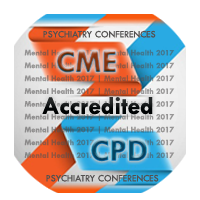
Ming-hui Li
St. John’s University, USA
Title: Learning to Become Resilient: An Empirical Study on Pathways
Biography
Biography: Ming-hui Li
Abstract
Statement of the Problem: The resilience process has been considered a learning process. Researchers indicated that resilience is developed in the process of individual-environment interactions. The ability to learn from individual-environment interactions (life experiences) may play an important role in developing resilience. Few if any studies have empirically explored the relationship between life experience-learning (LEL) and resilience. This study addressed this gap in the literature.
Methods & Theoretical Orientation: Based on literature on human resilience, this study has developed and evaluated a path model that links attachment anxiety, attachment avoidance, LEL, self-compassion, self-efficacy and resilience. Specifically, the study explored (1) how are attachment anxiety and attachment avoidance related to LEL and resilience, (2) can LEL influence resilience directly and indirectly through self-efficacy and self-compassion, (3) how stable are the relationships among the six previously mentioned variables, under the infl uence of stress and generalized anxiety? A total of 187 participants took part in the study. Data were collected using scales that have good validity and reliability. Structural equation modeling and Haye’s moderated mediation approach were applied to analyze data.
Findings: Attachment anxiety and attachment avoidance each negatively infl uenced LEL and resilience. LEL could directly influence resilience and indirectly influence resilience via self-efficacy and self-compassion. Neither stress nor generalized anxiety could intervene direct and indirect eff ect from LEL to resilience.
Conclusion & Significance: The direct and indirect relationships between LEL and resilience were stable and consistent they were not changed by stress or generalized anxiety. Attachment anxiety and attachment avoidance each was more detrimental than stress and generalized anxiety were negatively impacting the relationship between LEL and resilience. Practical implications: (1) Enhancing LEL, self-compassion and self-effi cacy can promote resilience and (2) Resilience programs can be more effective when they include elements that can reduce the impact of attachment anxiety and attachment avoidance.
Figure 1. The Hypothesized Path Model
Note 1: LifeEX = life experience-learning, SelfEff = self-efficacy,
SelfComp = self-compassion, res = resilience, AtchAnx = attachment anxiety
2: A duplicate model with attachment anxiety replaced by attachment avoidance was also evaluated.

